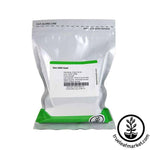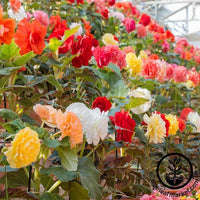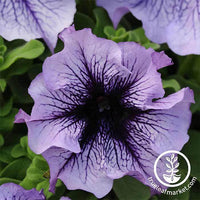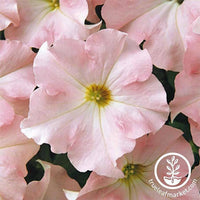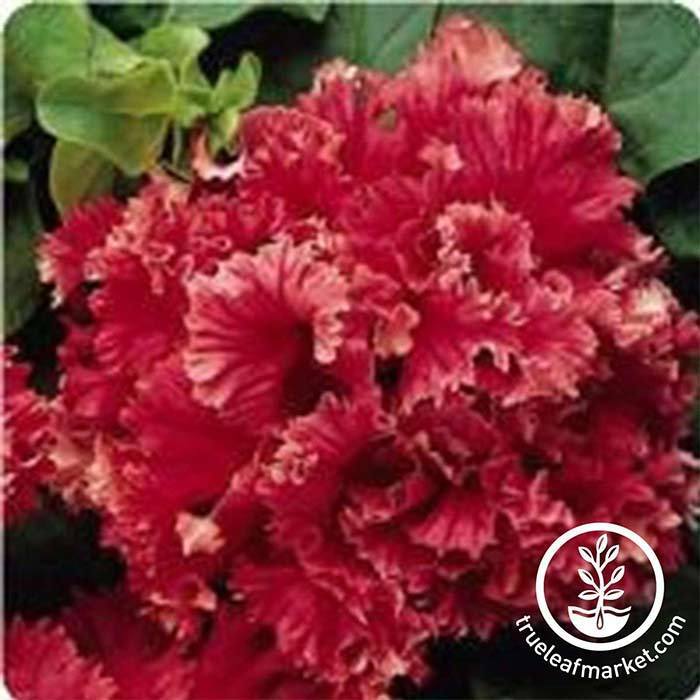
98-105 days. Valentine petunia seeds grow one of the most feathery, refreshing, and unique blooms you'll find in any garden. The Valentine petunia boasts lush and ruffled 4 inch blooms in a special "Valentine's Day" blend of velvety crimsons, cherries, and reds. Valentine petunia seeds are an ideal grow as an edging to a flower bed, walkway, or fencing, but small enough to thrive indoors or hanging from the porch. Valentine seeds promise an exciting and bright substitute to the traditional petunia to liven up any seasonal basket, bouquet, or centerpiece. Pelleted seeds.








